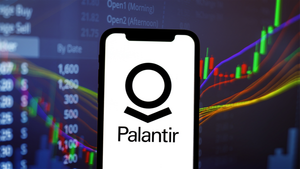- Recent evidence links obesity-driven inflammation to diminished brain health and neurodegenerative diseases such as Alzheimer’s and Parkinson’s diseases
- The newly published data show that obesity leads to progressive brain inflammation in a mouse model, and that the proinflammatory processes worsen with prolonged obesity and with increased age
- This research supports our selection of obesity with associated comorbidities as the lead indication for Inflammasome ASC Inhibitor IC 100
- IC 100 inhibits intra- and extracellular ASC and specks associated with multiple types of inflammasomes to attenuate damaging neurologic and systemic inflammation
WESTON, Fla., Oct. 22, 2024 (GLOBE NEWSWIRE) -- ZyVersa Therapeutics, Inc. (Nasdaq: ZVSA, or “ZyVersa”), a clinical stage specialty biopharmaceutical company developing first-in-class drugs for treatment of inflammatory and renal diseases, highlights data published in the peer-reviewed journal, Aging Cell, demonstrating that obesity in older adults or prolonged duration of obesity in the younger population resulted in inflammation and suppression of neurotrophic/neuroprotective factors in the brain, indicating that age and duration of obesity are critical risk factors for neurodegenerative diseases.
“With IC 100’s demonstrated penetration of the brain and key organs affected by obesity, such as heart, kidney, and liver, and its unique anti-inflammatory mechanism of action, IC 100 has potential to control the CNS and systemic inflammation of obesity and attenuate development and/or progression of associated comorbidities, such as Parkinson’s and heart diseases,” stated Stephen C. Glover, ZyVersa’s Co-founder, Chairman, CEO, and President. “The potential for IC 100 to attenuate the damaging neuroinflammation leading to Parkinson’s disease is supported by data from a recently completed in vitro study demonstrating IC 100’smechanistic proof-of-concept in this indication. The study was funded by the Michael J. Fox Foundation and conducted by researchers at the University of Miami Miller School of Medicine. Future Parkinson’s animal model studies are planned.”
The paper titled, Age and duration of obesity modulate the inflammatory response and expression of neuroprotective factors in mammalian female brain, summarizes research conducted in a diet-induced obesity (DIO) mouse model. To characterize the effects of age and duration of obesity, adolescent (5 weeks old) and mature adult (14 weeks old) female mice were fed a high fat diet (HFD) for either 13 or 26 weeks. Age-matched control mice were fed a standard diet. Key findings:
- HFD induced a typical obesity phenotype in mice independent of age and duration
- Significant weight gain, increase in fat cell size, and subcutaneous adipose tissue inflammation
- At 13 weeks, adolescent obese mice developed a limited inflammatory response in the hypothalamus, but when the duration was extended to 26 weeks:
- A systemic inflammatory response was demonstrated
- Inflammation was demonstrated in visceral adipose tissue, which is responsible for comorbidities, and in all three brain regions studied (hypothalamus, hippocampus, and cerebral cortex)
- Neurotrophic/neuroprotective factors were suppressed
- Microgliosis and astrogliosis developed, which are associated with brain damage
- Unlike adolescent mice at 13 weeks, mature adult mice demonstrated systemic inflammation and suppression of neurotrophic/neuroprotective factors in all three brain regions studied. This was sustained through the 26-week study, suggesting that advanced age may negatively affect obesity outcomes earlier than in younger individuals
“From the translational perspective, the findings of the present study highlight the importance of early interventions to combat obesity and, thus, to avoid the associated comorbidities,” concluded the authors.
About Inflammasome ASC Inhibitor IC 100
IC 100 is a novel humanized IgG4 monoclonal antibody that inhibits the inflammasome adaptor protein ASC. IC 100 was designed to attenuate both initiation and perpetuation of the inflammatory response. It does so by binding to a specific region of the ASC component of multiple types of inflammasomes, including NLRP1, NLRP2, NLRP3, NLRC4, AIM2, and Pyrin. Intracellularly, IC 100 binds to ASC monomers, inhibiting inflammasome formation, thereby blocking activation of IL-1β early in the inflammatory cascade. IC 100 also binds to ASC in ASC Specks, both intracellularly and extracellularly, further blocking activation of IL-1β and the perpetuation of the inflammatory response that is pathogenic in inflammatory diseases. Because active cytokines amplify adaptive immunity through various mechanisms, IC 100, by attenuating cytokine activation, also attenuates the adaptive immune response. The lead indication for IC 100 is obesity and its associated metabolic complications. To review a white paper summarizing the mechanism of action and preclinical data for IC 100, Click Here.
About ZyVersa Therapeutics, Inc.
ZyVersa (Nasdaq: ZVSA) is a clinical stage specialty biopharmaceutical company leveraging advanced proprietary technologies to develop first-in-class drugs for patients with inflammatory or kidney diseases with high unmet medical needs. We are well positioned in the rapidly emerging inflammasome space with a highly differentiated monoclonal antibody, Inflammasome ASC Inhibitor IC 100, and in kidney disease with phase 2 Cholesterol Efflux MediatorTM VAR 200. The lead indication for IC 100 is obesity and its associated metabolic complications, and for VAR 200, focal segmental glomerulosclerosis (FSGS). Each therapeutic area offers a “pipeline within a product,” with potential for numerous indications. The total accessible market is over $100 billion. For more information, please visit www.zyversa.com.
Cautionary Statement Regarding Forward-Looking Statements
Certain statements contained in this press release regarding matters that are not historical facts, are forward-looking statements within the meaning of Section 21E of the Securities Exchange Act of 1934, as amended, and the Private Securities Litigation Reform Act of 1995. These include statements regarding management’s intentions, plans, beliefs, expectations, or forecasts for the future, and, therefore, you are cautioned not to place undue reliance on them. No forward-looking statement can be guaranteed, and actual results may differ materially from those projected. ZyVersa Therapeutics, Inc (“ZyVersa”) uses words such as “anticipates,” “believes,” “plans,” “expects,” “projects,” “future,” “intends,” “may,” “will,” “should,” “could,” “estimates,” “predicts,” “potential,” “continue,” “guidance,” and similar expressions to identify these forward-looking statements that are intended to be covered by the safe-harbor provisions. Such forward-looking statements are based on ZyVersa’s expectations and involve risks and uncertainties; consequently, actual results may differ materially from those expressed or implied in the statements due to a number of factors, including ZyVersa’s plans to develop and commercialize its product candidates, the timing of initiation of ZyVersa’s planned preclinical and clinical trials; the timing of the availability of data from ZyVersa’s preclinical and clinical trials; the timing of any planned investigational new drug application or new drug application; ZyVersa’s plans to research, develop, and commercialize its current and future product candidates; the clinical utility, potential benefits and market acceptance of ZyVersa’s product candidates; ZyVersa’s commercialization, marketing and manufacturing capabilities and strategy; ZyVersa’s ability to protect its intellectual property position; and ZyVersa’s estimates regarding future revenue, expenses, capital requirements and need for additional financing.
New factors emerge from time-to-time, and it is not possible for ZyVersa to predict all such factors, nor can ZyVersa assess the impact of each such factor on the business or the extent to which any factor, or combination of factors, may cause actual results to differ materially from those contained in any forward-looking statements. Forward-looking statements included in this press release are based on information available to ZyVersa as of the date of this press release. ZyVersa disclaims any obligation to update such forward-looking statements to reflect events or circumstances after the date of this press release, except as required by applicable law.
This press release does not constitute an offer to sell, or the solicitation of an offer to buy, any securities.
Corporate, Media, and IR Contact:
Karen Cashmere
Chief Commercial Officer
kcashmere@zyversa.com
786-251-9641






